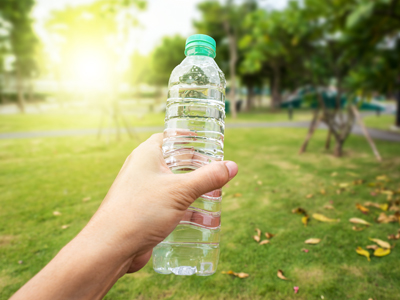
Water - Age 7-11
As part of the Health section of PSHE KS2 aged children are taught the importance of water to maintain their health. This quiz, written for children in yearts 3-6, will help them learn the important roles water has in our bodies and give them ideas on how to increase their water intake.
Water is an essential part of a balanced diet. It has many benefits for both physical and mental health. The majority of bodily functions require water in order to work effectively, keeping us healthy and preventing illness. A large proportion of our body is made up of water but this is lost during the day, so it is vital that we replace the lost water to prevent dehydration.
Water can be found in many places but not all of it is safe to drink. You should only drink bottled water and tap water. Rain, lake and seawater is not safe to drink because it has not been purified and may contain parasites and bacteria that can cause illness.







